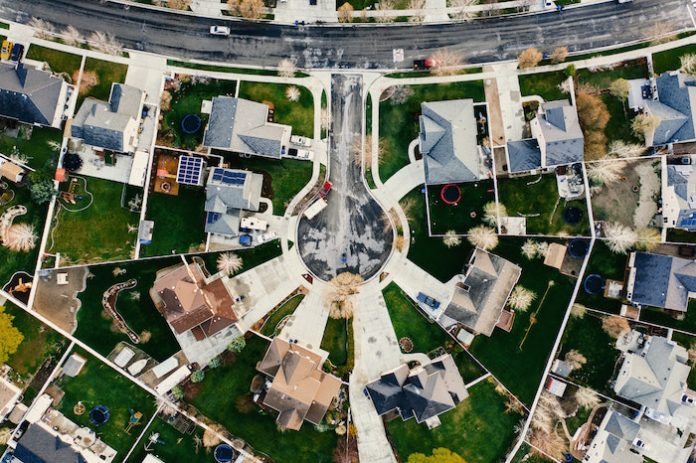An HOA, or homeowners association, is funded from the homeowners in the community. The residence owners pay a monthly fee and the funds are used to run the association much like a business. When the HOA funds are mismanaged, the association could face bankruptcy. When a homeowner’s association goes bankrupt, the reason is likely mismanagement of funds, theft, or embezzlement. That’s why it’s important to keep all HOA members on their toes with regular elections in the presence of an inspector of elections who will ensure compliance with laws and regulations for California HOA elections.
The revenue of the HOA can also decrease because of home foreclosures, since this means there won’t be as many payment members in the community. One of the first signs of trouble to look out for is when the HOA starts withholding information from members.
What Happens When an HOA Goes Bankrupt
A homeowners association can file for Chapter 11 bankruptcy. This type of bankruptcy allows the organization to reorganize their funds and management systems. With Chapter 11, the HOA has to disclose all assets and income streams and the organization’s liabilities are frozen.
During the Chapter 11 process, the HOA managers will stay in office, but any major decisions will have to be court-approved. The HOA will work with the courts to come up with a repayment arrangement and will be under the trustee of the court until the organization can be financially independent again.
Homeowner Asset Protection
When a homeowners association and a creditor go to court and the creditor wins, the creditor can receive all the HOA’s assets. This doesn’t necessarily affect homeowners, but some community services or amenities may be eliminated or limited in common areas of the neighborhood, such as picnic tables, swimming pools, and playgrounds. When the HOA goes into bankruptcy, collection of the property is delayed so the community can retain its assets.
HOA Reorganization
With the assistance of an attorney, an HOA may reorganize for the purpose of repaying debts and restoring the financial health of the organization. Bankruptcy payments are submitted to the Trustee of the USA. If the HOA can’t make payments to the trustee, the court will appoint a third party to oversee daily operations
It’s also a good idea for a homeowners association to implement technology into financial organization efforts. Cloud-based solutions are the next step for association management software, and it can let the leaders know who is handling certain monetary tasks.
Homeowners Association Contracts
An HOA can reject the current leases and contracts. This can directly or indirectly affect the residents who live in the community. The homeowners association can also overlook the conditions, restrictions, and covenants of the community, which means residents can lose certain rights to neighborhood facilities.
If a homeowners association files for Chapter 11 bankruptcy, the neighborhood residents won’t be able to use common areas like clubhouses, swimming pools, and hiking trails. If the HOA files for Chapter 7, some neighborhood assets may be liquidated to satisfy the debt with creditors. This also makes it difficult for homeowners to sell their residences, since new buyers won’t be able to obtain title insurance for the house.
Why Do Homeowners Associations Go Broke?
Most HOA financial crises are preventable. Common causes include:
-
Poor financial management or lack of professional oversight
-
Inadequate reserve funds for long-term repairs
-
Embezzlement or fraud by board members or managers
-
High foreclosure rates, reducing dues collection
-
Unexpected major repairs, such as roof or infrastructure failure
A major red flag is when the HOA board becomes less transparent or avoids sharing financial records with homeowners.
Early Warning Signs Your HOA Is in Financial Trouble
Homeowners often miss subtle signals before a full-blown crisis occurs. Warning signs include:
-
Deferred maintenance or cosmetic “band-aid” repairs
-
Vendors refusing service due to unpaid invoices
-
Sudden or repeated special assessments
-
Delayed financial reports or canceled meetings
-
Rising delinquency rates among owners
Spotting these early gives residents time to intervene before bankruptcy becomes unavoidable.
What Happens When an HOA Files for Bankruptcy?
An HOA may file for Chapter 11 or Chapter 7 bankruptcy, depending on its financial condition.
Chapter 11 Bankruptcy (Reorganization)
Chapter 11 allows the HOA to:
-
Continue operating while restructuring debt
-
Freeze creditor collection actions
-
Renegotiate contracts and payment schedules
Board members usually remain in place, but major financial decisions require court approval. The HOA operates under court supervision until stability is restored.
Chapter 7 Bankruptcy (Liquidation)
Chapter 7 is more severe and may involve:
-
Liquidation of HOA assets
-
Loss of amenities like pools or clubhouses
-
Greater difficulty for homeowners selling their properties
This option is typically a last resort when recovery is not feasible.
How HOA Bankruptcy Affects Property Values
An HOA with financial instability can significantly hurt home values due to:
-
Poorly maintained common areas
-
Suspended amenities
-
Difficulty obtaining title insurance
-
Reduced buyer confidence
Even homeowners who pay dues on time may suffer reduced equity until the HOA regains financial health.
HOA Contracts, Vendors, and Community Services
During bankruptcy, an HOA may:
-
Terminate or renegotiate vendor contracts
-
Suspend landscaping, security, or maintenance services
-
Temporarily close pools, gyms, or clubhouses
While these steps may reduce expenses, they often lower the quality of life within the community.
What Homeowners Should Do If Their HOA Is Broke
If your HOA shows signs of financial distress, take action early:
-
Request financial statements and reserve studies
-
Attend board meetings and vote in elections
-
Advocate for audits and transparent reporting
-
Consult an HOA attorney or CPA
-
Prepare financially for potential assessments
An informed and engaged homeowner base can often prevent total collapse.
Can the Government Take Over a Broke HOA?
In extreme cases, local or state authorities may step in to ensure essential services and safety. Public funds may temporarily maintain the community, but the HOA typically remains responsible for repaying debts over time.
Home Values and HOA Bankruptcy
When the homeowners association goes broke, the homes in the neighborhood are likely to decline in value. This is why many homeowners will lobby to sue the HOA for financial mismanagement.
It’s also important to know that bankruptcy for apartment complexes affects all tenants. When the homeowners association files bankruptcy for an apartment complex, the tenants are technically protected. However, they may have to take legal action to ensure they can stay in their apartments.
The HOA is the debtor in these cases, and the courts grant the organization a “stay,” which prevents creditors from demanding funds. This allows the homeowners association time to figure out a suitable way to pay creditors.
It’s important to note that in the worst-case scenarios, the government will oversee the HOA during its trying financial time. Public revenues are then spent on community maintenance. If the property is to stay under the HOA’s leadership, the organization will have to repay their debts with private funds.
Conclusion
A financially struggling HOA can have serious repercussions for both the community and individual homeowners. From reduced amenities and deferred maintenance to potential bankruptcy, the impact goes beyond the organization’s balance sheet—it can affect property values, quality of life, and neighborhood stability. Early intervention, transparency, and active homeowner involvement are key to preventing a crisis. By staying informed, attending meetings, reviewing financial statements, and advocating for accountability, residents can help ensure their HOA remains solvent and effective. Ultimately, a proactive and engaged community is the best safeguard against HOA financial collapse.
FAQs
1. What happens if an HOA runs out of money?
When an HOA runs out of money, it may raise dues, issue special assessments, reduce services, delay maintenance, or file for bankruptcy. Homeowners are not directly liable, but community quality and property values often suffer.
2. Can an HOA legally declare bankruptcy?
Yes, an HOA can file for bankruptcy, typically Chapter 11 to reorganize debt or Chapter 7 to liquidate assets. Bankruptcy allows the HOA to pause creditor actions while restructuring finances.
3. Are homeowners responsible for HOA debts?
Homeowners are generally not personally responsible for HOA debts. However, they may be required to pay higher dues or special assessments to help stabilize the association’s finances.
4. How does HOA bankruptcy affect home values?
HOA bankruptcy can lower home values due to reduced amenities, deferred maintenance, and difficulty obtaining financing or title insurance, making properties harder to sell.
5. What should homeowners do if their HOA is mismanaging funds?
Homeowners should request financial records, attend board meetings, vote in elections, demand audits, and consult an HOA attorney if mismanagement or lack of transparency is suspected.
Find a Home-Based Business to Start-Up >>> Hundreds of Business Listings.
















































